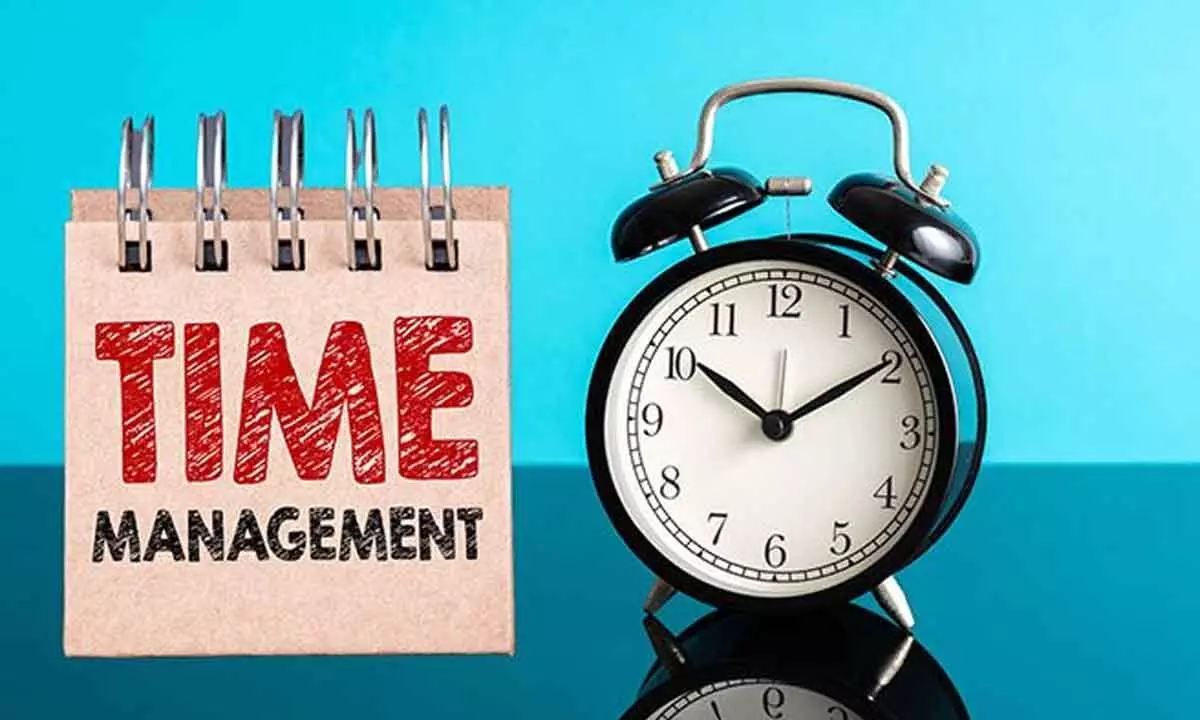Time management: Tips for CBSE board exams

The CBSE Board Exams are just around the corner, and for students, managing time effectively is the key to success. The pressure to perform well, coupled with the vast syllabus, can be overwhelming. However, with strategic time management, students can not only cover the curriculum comprehensively but also approach the exams with confidence. Here are some invaluable time management tips to crack the clock and ace the upcoming CBSE Board Exams:
1. Establish a Daily Schedule:
Plan your study schedule meticulously. Allocate specific times for each subject and chapter. Consider the difficulty level of topics when planning your daily routine. Create a timetable that suits your natural rhythm and allows for breaks to avoid burnout.
2. Break down the syllabus
Divide the entire syllabus into manageable sections. Break down subjects into chapters and allocate time based on their weightage. Prioritize topics that are challenging or carry more marks, ensuring a balanced coverage of the entire curriculum.
3. Practice effective writing
Improve your writing speed by regularly practicing with sample papers, previous year’s question papers, and mock tests.
Set time limits for solving practice papers to enhance your efficiency during the actual exam.
Focus on maintaining legibility while writing at an accelerated pace.
4. Prioritize questions
During the exam, prioritize questions based on your confidence level and the time required for each. Mark questions you can answer quickly and accurately. Allocate the remaining time to more challenging ones.
5. Realistic time allocation
Be realistic in assigning time limits to questions based on their marks and complex it.
Avoid spending too much time on a single question; if you find yourself stuck, move on and return to it later if time permits.
6. Time yourself during practice
While studying, practice time management by setting a timer for specific study sessions.
This mirrors exam conditions and helps you gauge your pace .
Evaluate your performance after each timed session and identify areas for improvement.
7. Utilize breaks wisely
Take short breaks during study sessions to refresh your mind. Use techniques like deep breathing or a quick walk to rejuvenate. Avoid spending excessive time on distractions during breaks, and ensure they don’t extend beyond the planned duration.
8. Create revision schedules
Plan dedicated revision sessions to reinforce what you’ve learned. Regular revision is essential for long-term retention.
Focus on key concepts, formulas, and problem-solving techniques during revision to solidify your understanding.
9. Stay organised
Keep your study materials organized. A clutter-free workspace contributes to a focused and productive study environment. Have a checklist to track your progress and ensure that you cover all the essential topics before the exams.
10. Seek help when needed
If you’re facing challenges in understanding certain topics, don’t hesitate to seek help from teachers, classmates, or online resources. Addressing doubts promptly ensures a clear understanding of concepts, preventing last-minute confusion. As the clock ticks down to the CBSE Board Exams, effective time management becomes a powerful tool for success. By implementing these tips, students can navigate the exam period with confidence, ensuring a thorough understanding of the curriculum while maintaining a healthy balance between study and relaxation. Remember, it’s not just about managing time; it’s about making the most of every moment in the countdown to success. So, gear up, crack the clock, and face the exams with determination and preparedness.
(The author is Principal KIIT World School Gurugram)














